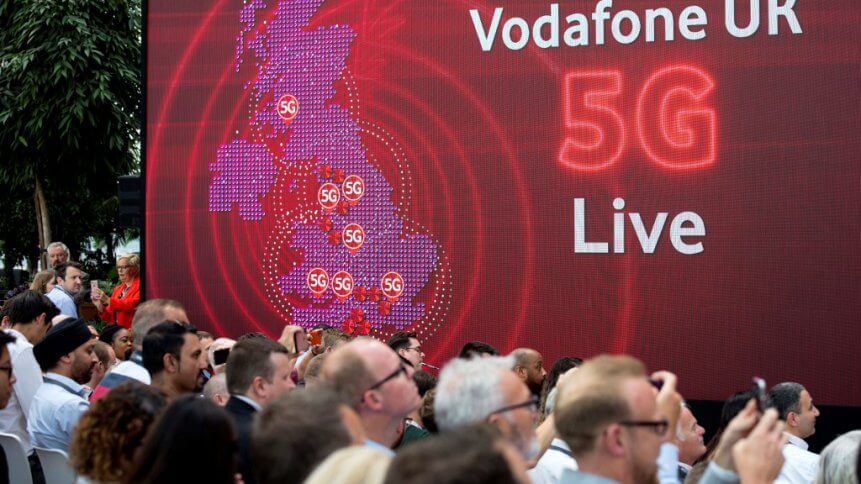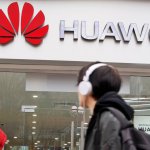5G worth £150B for UK economy but Huawei ban risks growth

- Earlier this year, the UK permitted Huawei equipment to be used with several restrictions in place
- Vodafone research found 5G connectivity could add £38 billion (US$47 billion) to the UK economy over the next five years
- Huawei remains one of the most highly-scrutinized 5G vendors in the world and UK review looms
There has been growing pressure for the UK to take a stand in the 5G war as some Western nations reevaluate their relationship with China following the coronavirus pandemic outbreak and recent political events.
Much of the concern and discussion revolves around the ban of Chinese 5G giant, Huawei.
In January, the UK officially approved Huawei’s involvement in building the nation’s 5G infrastructure, but also categorized Huawei as a “high risk vendor.” A cap of 35% was placed on Huawei’s participation in the development of UK 5G networks. The firm was also excluded from supplying technology to “sensitive parts” of the network, which includes locations near military bases and nuclear sites.
Despite the cloud of controversy surrounding the 5G firm, Huawei’s equipment is often cited as being the best in the market.
Recently, Vodafone published a report that suggests 5G connectivity could contribute up to £38 billion (US$47 billion) to the UK economy over the next five years. The UK network operator also revealed that the country would see £158 billion (US$197 billion) in 5G-inspired productivity benefits over the course of a decade.
“5G can be a key tool in leveling up the country across sectors and geographies and play a significant role in the economic recovery from Covid-19,” the report reads.
“It is crucial to recognize the role that fast and reliable connectivity will play in unlocking the digital potential that exists in every nation and region across the UK. 5G will provide new and exciting opportunities for businesses of all shapes and sizes and across all sectors,” Vodafone UK CEO Nick Jeffrey shared.
The research detailed the applications of 5G across various sectors from healthcare to retail, to being used in supporting businesses remote working due to the recent coronavirus outbreak.
Even though the UK has approved a limited role for Huawei equipment to be used in the nation’s 5G infrastructure, recent events could possibly shift the direction of Britain’s plans.
The US tough sanction on Huawei meant that the 5G giant could no longer work with American companies that supply semiconductor equipment. In this context, the UK is concerned about new security risks that may emerge due to the switch of suppliers.
“Given that these sanctions… are extensive, it is likely to have an impact on the viability of Huawei as a provider for the 5G network,” said Digital Secretary Oliver Dowden, as reported on BBC.
A fresh decision on Huawei is expected in the following weeks as officials are expected to draw up plans to phase out the Chinese vendor from the nation’s 5G network framework.
In an emailed statement, the British government stated: “We are considering the impact the US’s additional sanctions against Huawei could have on UK networks.”
With the exception of O2 (which uses Ericsson and Nokia 5G equipment), three of the UK’s largest wireless providers (EE, Vodafone, and Three) currently rely on Huawei equipment for their 5G infrastructure.
Huawei supplies about a third of the equipment for Vodafone’s radio access network (RAN).
Vodafone UK CTO Scott Petty told Financial Times that the UK risks losing the lead in 5G if “mobile operators are forced to spend time and money replacing existing equipment,” as a reference to possible further exclusion of Huawei kits.










